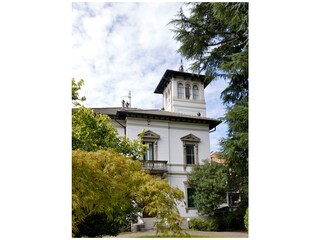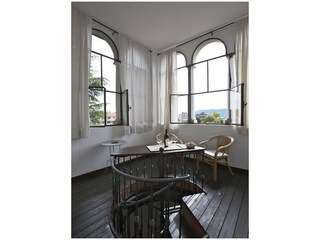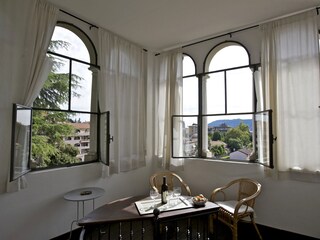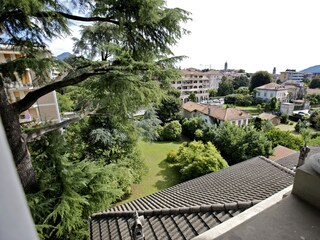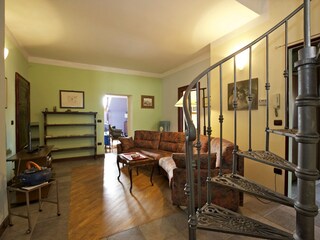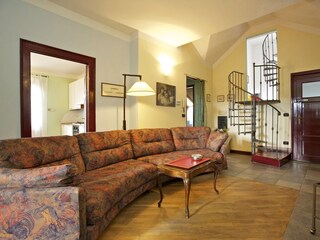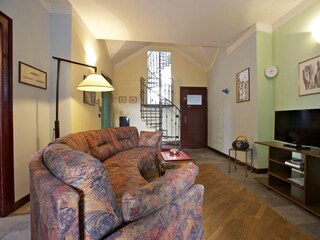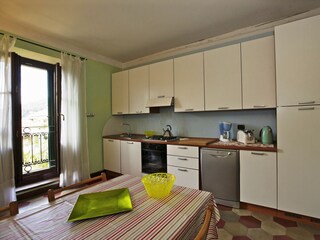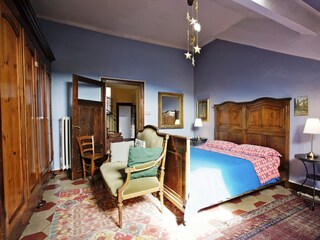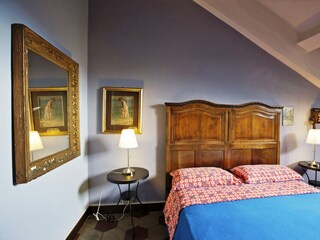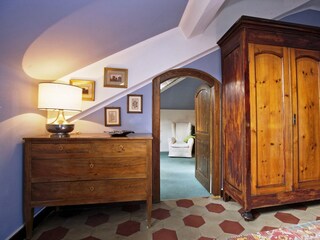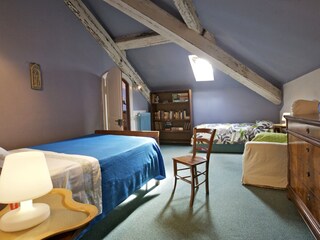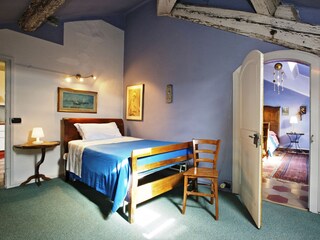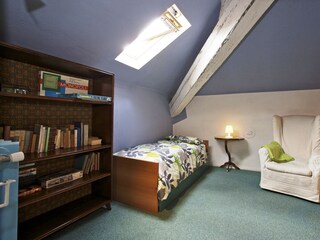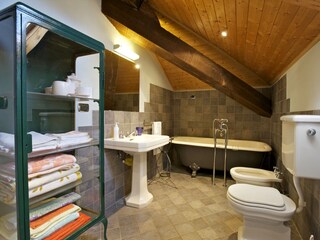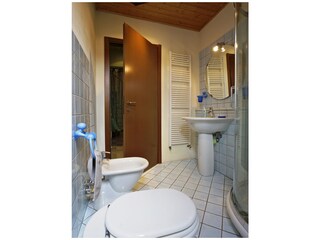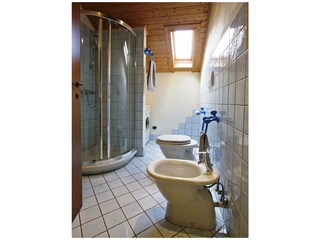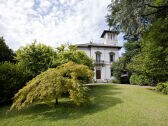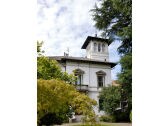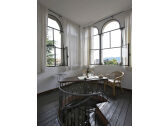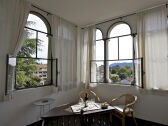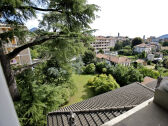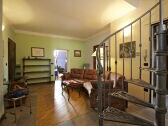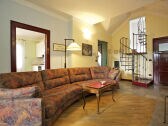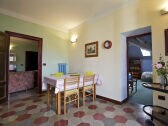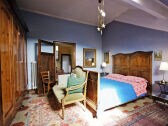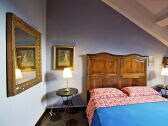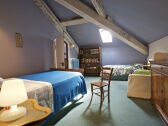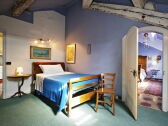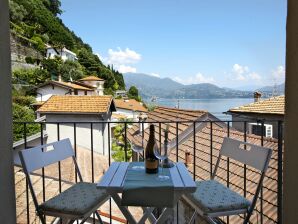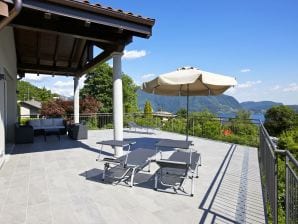1 / 19
Apartment La Torretta
3 Bedrooms
2 Bathrooms
Max. 4 guests
90 m²
Pallanza
View on Map
1 / 19
Prices
Please select dates and number of guests
Description
Unique 3-room tower apartment with eat-in kitchen and 2 bathrooms in a beautiful Art Nouveau villa. Central yet quiet location. Furnished with great attention to detail and valuable antique furniture approximately 200 years old. Well-equipped with...
Amenities
3 Bedrooms
Max. 4 guests
90 m²
Free WIFI
Pets and dogs not allowed
Smoking not allowed
Washing machine
Prices
Please select dates and number of guests
Usage-dependent additional costs
Please note that additional usage-dependent costs may apply. For questions about this, please contact the host directly.
Host's notes
Cancellation policy
In the event of a cancellation by the tenant from the agreed rental contract, the following cancellation fees must be paid by the tenant - unless otherwise stated in the rental agreement:
• from the start of the binding rental agreement up to 30 days before arrival: 30% of the net rental price
• from 30 days before arrival: 95% of the net rental price
• "No Show" or termination of the rental during the agreed rental period: 100% of the net rental price
Rental conditions
- •Deposit: 20% of the rental price days after booking due
- •Final payment: days before arrival
- •no security deposit
Payment options
- •Bank transfer
Location
Distances
airport:64 km
beach:2 km
ferry port:1 km
restaurant:200 m
ski-lift:15 km
Nearby
Our leisure tips
- •Alpine skiing
- •Barbecue
- •Bike rental
- •Cross-country skiing
- •Cycling
- •Football
- •Gliding
- •Golf
- •Harbour tour
- •Hiking
- •Horseback riding
- •Mountain biking
- •Mountain hiking
- •Museums
- •Open-air pool
- •Outlet shopping
- •Rowing
- •Sailing
- •Sightseeing
- •Spa
- •Swimming
- •Tennis
- •Water sports
- •Waterskiing
- •Wine tasting
Holiday destination
Pallanza (approx. 10,000 inhabitants) is of Roman origin and was first mentioned in documents in the 11th century. Like its neighboring towns Intra and Suna, Pallanza was subjected to various ruling families over many centuries due to its strategically important location; since 1939, these three places have formed the provincial capital of Verbania (approx. 18,000 inhabitants). At the beginning of the 19th century, tourism began to flourish, which was greatly boosted by the construction of the railway and the Simplon Pass. Many famous personalities came here to enjoy the magnificent location in the Borromean Gulf, the mild climate, and the resulting Mediterranean vegetation. Directly opposite Pallanza on the small private island of San Giovanni - which is still privately owned by the Borromeo family - the world-famous conductor Arturo Toscanini lived for many years. He retreated there to draw strength and peace in the unique ambiance and to find inspiration for new challenges.
During a walk through the charming old town with its medieval alleys, churches, chapels, villas, gardens, arcades, restaurants, bars, and many small shops, as well as the beautiful lakeside promenade, there is much to discover.
The beautiful Art Nouveau villas still testify to a bygone era of wealth and distinction. One of these villas has become world-famous because of its park: the Villa Taranto on Punta della Castagnola. Here you will find more than 20,000 different plant species from all over the world on an approximately 20-hectare park. Not only is the botanical diversity impressive at any time of the year, but also the beautiful location between the lake and the mountains. One of the city's most famous sons, Giovanni Maria Farina, gained world fame in Cologne in 1714. Thanks to his intuition and fine nose, the world owes him the famous "Cologne Water," which he himself described as follows: "My fragrance is like an Italian spring morning after the rain: oranges, grapefruits, bergamot, lemons, citron, lime, and the flowers and herbs of my homeland." Napoleon himself desperately wanted to acquire the recipe, and it was only through cunning deception that it did not fall into his hands. After the French Revolution at the end of the 18th century, many competitors tried to copy the scent and the name, and since there was no trademark protection at the time, "Eau de Cologne" became the synonym for an entire class of fragrance.
Availability
Legend:
Free
Occupied
Contact
Company Lago ReisenundefinedGerman, English, French, Italian, Portuguese and Spanish
Accommodation number: 452766
Host informationSince 1998, we have specialized in the rental of holiday apartments and homes in Italy, with a focus on Lake Maggiore. Our carefully selected range extends from cozy one-room apartments to large luxury villas.
The Apartment has no reviews yet
No review has been submitted for this accommodation yet. Write the first review now!
More accommodations
More accommodations from Company Lago ReisenundefinedShow all accommodations

